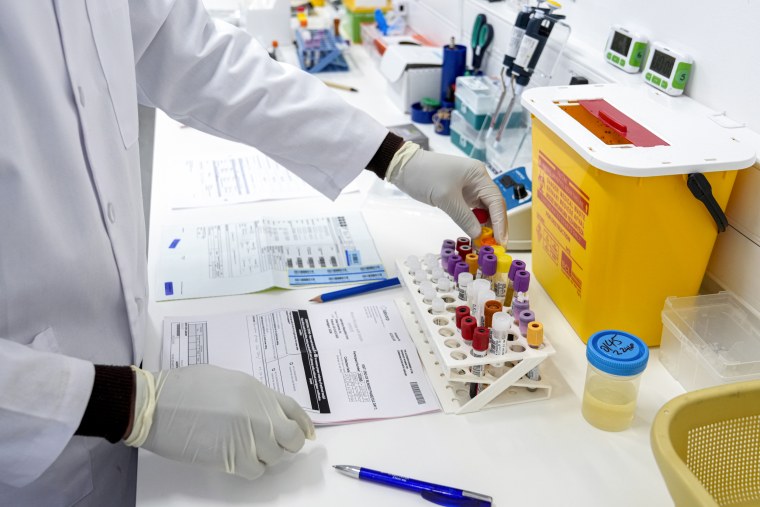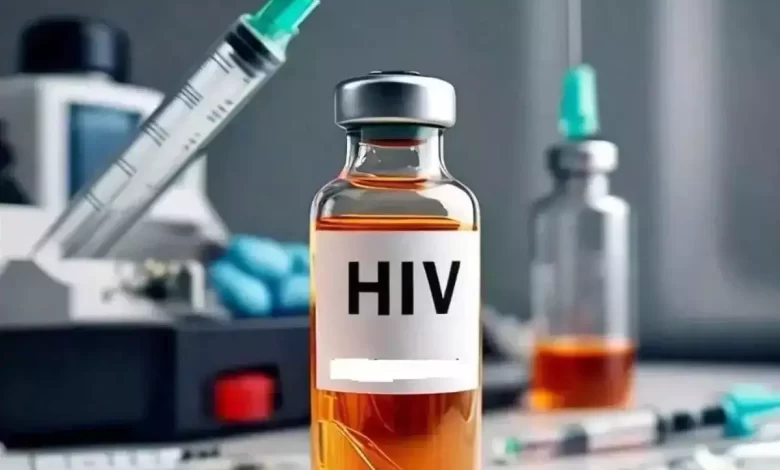In a trial involving over 5,000 participants in South Africa and Uganda, researchers found no illnesses in the young women and girls who received the vaccinations.

According to research data released on Wednesday, women who received twice-yearly injections for AIDS were 100% protected against contracting new infections.
Researchers found that in a trial involving roughly 5,000 participants in South Africa and Uganda, no illnesses occurred in the young women and girls who received the vaccinations. About 2% of a group that took daily preventive tablets ended up contracting HIV from sexual partners who were infected.
Salim Abdool Karim described the injections as “striking” because of the degree of protection they provided. He was not involved in the study; instead, he is the head of an AIDS research facility in Durban, South Africa.
The American pharmaceutical company Gilead’s injections, marketed under the brand name Sunlenca, are authorized for use as an HIV therapy only in the United States, Canada, Europe, and other countries.
The business said that before requesting approval to use it as an infection preventive measure, it is awaiting the results of tests on males.

The findings pertaining to females were presented at an AIDS conference in Munich and published in the New England Journal of Medicine on Wednesday. The study was funded by Gilead, and a few of the researchers work for the business. The trial was terminated early because to the unexpectedly positive findings, and all subjects were given the opportunity to get the injections, commonly known as lenacapavir.
Although there are other methods of preventing HIV infection, such as daily medications or condoms, continuous usage has shown to be problematic in Africa. Only around 30% of individuals in the latest trial who were prescribed Gilead’s Truvada or Descovy preventive medications actually took them, and that percentage gradually decreased.
According to Thandeka Nkosi, who oversaw the Gilead study at the Desmond Tutu Health Foundation in Masiphumelele, South Africa, the possibility of a twice-yearly injection is “quite revolutionary news” for our patients. “It just removes the whole stigma around taking pills to prevent HIV and gives participants a choice.”

While AIDS prevention experts applaud the Sunlenca vaccine, they are worried Gilead hasn’t yet settled on a reasonable cost for the most vulnerable. The firm said that it will pursue a “voluntary licensing program,” implying that the production of generics would be restricted to a chosen group of manufacturers.
According to Winnie Byanyima, executive director of the U.N. AIDS agency located in Geneva, “Gilead has a tool that could change the trajectory of the HIV epidemic.”
According to her, Gilead was pushed by her group to share Sunlenca’s patent with a U.N.-backed program that negotiates large contracts that enable generic drugmakers to produce affordable copies of medications for underdeveloped nations throughout the globe. The cost of the medication as an HIV therapy varies, but in the United States, it exceeds $40,000.
The injections have the potential to “reverse the epidemic if they are made available in the countries with the highest rate of new infections,” according to a statement from Dr. Helen Bygrave of Doctors Without Borders. She pleaded with Gilead to provide a Sunlenca pricing that is reasonable for all nations.
Gilead said in a statement from last month that it was premature to estimate Sunlenca’s cost for preventive in developing nations. Gilead’s senior vice president of clinical research, Dr. Jared Baeten, said that the business was in communication with generics producers and recognized the need of moving quickly.
Apretude, a second HIV preventive injection given every two months, is authorized in a few nations, particularly those in Africa. It still costs too much for the majority of underdeveloped nations, selling for around $180 per patient year.
According to Byanyima, those who need ongoing protection the most include homosexual males living in nations where same-sex partnerships are illegal as well as women and girls who are victims of domestic abuse. UNAIDS reports that 46% of new HIV infections worldwide in 2022 occurred in women and girls, who in Africa had a threefold higher risk of contracting the virus than males.

Byanyima likened the Sunlenca revelation to the discovery of AIDS medications decades before, which allowed HIV infection to be treated as a chronic condition instead of a death sentence. Nelson Mandela, the president of South Africa at the time, halted patents to provide more access to the medications; subsequently, the cost per patient decreased from around $10,000 per year to approximately $50.
Desmond Tutu Health Foundation health worker Olwethu Kemele expected that the vaccines will increase the number of individuals seeking HIV prevention services and reduce the virus’s spread. According to her, young ladies often conceal their pill use to evade inquiries from family members and lovers. It’s difficult for the girls to go on, she remarked.
UNAIDS reported this week that fewer individuals were HIV positive in 2023 than at any other time since the late 1980s. The study covered the status of the worldwide pandemic. Approximately 1.3 million individuals worldwide get HIV each year, and the virus kills over 600,000 people, mostly in Africa. HIV infections are on the rise in Eastern Europe, Latin America, and the Middle East, despite notable advancements in Africa.
In other study that was presented at the AIDS conference, Andrew Hill of the University of Liverpool and colleagues calculated that Sunlenca should become more affordable at about $40 per treatment once manufacturing is increased to serve 10 million individuals. He said that it was imperative that Sunlenca be made accessible to health officials as soon as possible.
He said, “This is about as close to an HIV vaccine as you can get.”





